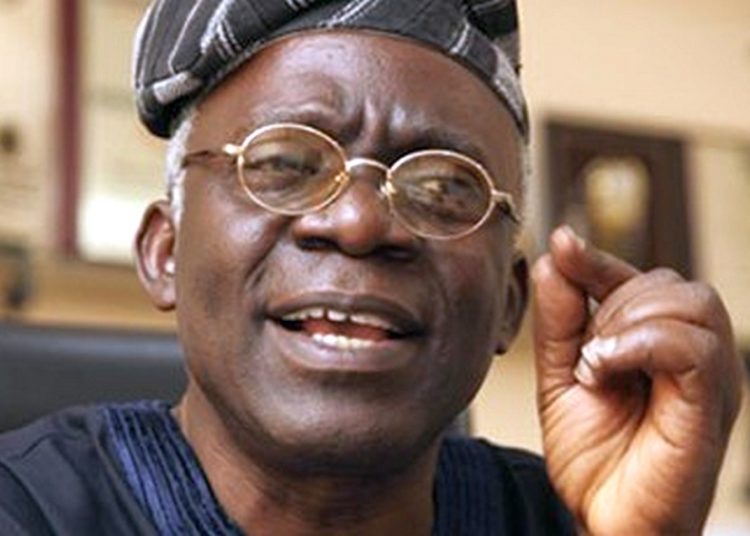Human rights lawyer, Femi Falana (SAN) has argued that the federal government is legally obligated by section 4 of the Price Control Act and section 316 of the Petroleum Industry Act to determine and fix the prices of all petroleum products sold in Nigeria.
Falana, who is also the chairman of the Alliance on Surviving COVID-19 and Beyond (ASCAB), stated this when he faulted the claims by the minister of state petroleum resources, Chief Timipre Sylva, that the government has no powers to intervene in the rising price of household kerosene and cooking gas.
The senior lawyer, in a press statement he issued in Lagos on Sunday, insisted that contrary to the Minister’s claim, the federal government is legally obligated to determine and fix the prices of petroleum products Including petrol motor spirit, kerosene and cooking gas.
He pointed out that under the Price Control Act 1977 and the Price Control Commodities Order 22 of 1979, the federal government has controlled the prices of petrol, diesel oil and other petroleum products and that both the Act and the Order are still valid laws.
Falana said the purported deregulation of the product was illegally pushed out by the Buhari administration.
He said it is common knowledge that the federal government, through the NNPC, is the sole importer of fuel into the country and that it is claiming to be subsidising the product.
The lawyer, therefore, asked, how can the federal government turn around to allow private companies or the so-called market forces to fix the price of the same product?
Falana said, “in July 2020, Chief Sylva, said that an alternative source of fuel, Compressed Natural Gas (CNG) would cost between N95 to N97 per litre, to make fuel more affordable in the country.
“About a year later, it was disclosed by the Minister that as part of efforts to ensure that the autogas conversion of vehicles yielded the desired results, the Federal Government had set aside N250 billion for willing investors in auto gas assembly plants in the country.
“The federal government should tell Nigerians why the migration from PMS to CNG has been abandoned.
“In Bamidele Aturu v Minister of Petroleum Resources and the Attorney General of The Federation (Suit No FHC/ABJ/CS/591/2009), Justice M. Bello declared the policy of deregulation of the downstream sector of the petroleum industry to be unconstitutional, illegal, null and void.











